On October 9, China’s Ministry of Commerce announced a series of new regulations tightening export controls on rare earths and related technologies. This is not just a routine administrative move, but a strategic move that could reshape the entire global high-tech supply chain, posing unprecedented challenges to international businesses.
The core and most groundbreaking point in this regulation is that China has for the first time applied a mechanism similar to the "Foreign Direct Product Rule" - a tool that the US has used very effectively in the semiconductor chip war.
Specifically, now, a company in any other country, if it wants to export its products, will have to apply for a license from the Chinese government if the product contains even a small amount of rare earths originating from China or is produced with Chinese technology or equipment in the fields of mining, refining, recycling or manufacturing rare earth magnets.
In other words, Beijing's influence extends beyond its borders, tracing the flow of its rare earth minerals and technology across the globe.

Rare earths - the "trump card" that helps China dominate the global supply chain, from electric vehicles to defense technology (Photo: Techspot).
Face-to-face challenges for global businesses
The move is a blow to efforts by the US and its allies to diversify supply chains. Building a permanent magnet factory in Europe or a refining facility in Australia would be much more complicated.
Even if they have factories outside China, businesses still face Beijing's "long arm" if they remain dependent on raw materials or core technologies from there.
But the risks don’t stop at raw material supply. The new regulations also target technology and equipment transfer. “Even if you buy equipment from China, you may not get technical support or maintenance later,” worries Wade Senti, president of Advanced Magnet Lab (USA).
This creates a huge operational risk, as multi-million dollar production lines can be brought to a standstill due to lack of expertise or spare parts.
The new rules also clearly define which customers are not welcome. Orders for overseas defense purposes will be banned outright, while applications for advanced semiconductors will be reviewed on a case-by-case basis, creating an uncertain “gray area” for chipmakers.
Economic leverage in the new context
China’s dominance in the industry is undeniable. The country accounts for about 70% of the world’s mining supply and nearly 90% of its refining capacity. It is its strategic trump card, and the new regulations are Beijing’s way of maximizing its power.
The move is seen as a sharp economic response to the technological restrictions the US has imposed on China. If Washington can control the flow of semiconductor chips globally, Beijing is proving it can do the same with rare earths – the foundational materials for the semiconductor industry itself, as well as electric cars, wind turbines and advanced military equipment.
The official reason given by China’s Ministry of Commerce is to “safeguard national security and interests” and prevent rare earth materials and technology from being misused in sensitive sectors. But for businesses, the message is clear: the era of easy, unregulated access to rare earth supplies is over.

China currently accounts for about 70% of the global mining supply and nearly 90% of the global rare earth refining capacity (Photo: Getty).
What future for the rare earth supply chain?
Beijing’s decision puts Western companies and governments in a difficult position. On the one hand, it adds urgency to the search for new rare earth mines and the development of independent refining technology. On the other, it shows that decoupling from China is much more complicated and costly than previously thought.
High-tech companies now have to recalculate their risk appetite. They will have to answer tough questions: How to verify the origin of every gram of rare earth in their products? Should they invest in recycling technologies to reduce their dependence on primary supplies? And are there any alternative materials to rare earths in the future?
The rare earth chess game has entered a new phase, more complex and unpredictable. China’s move is not just a trade barrier, but a statement of power in the global supply chain. Businesses around the world, whether they like it or not, have been caught up in this game and must quickly find adaptive strategies to survive and thrive.
Source: https://dantri.com.vn/kinh-doanh/cong-ty-toan-cau-phai-xin-phep-khi-ban-san-pham-co-dat-hiem-trung-quoc-20251009125445557.htm



![[Photo] "Exposing letters" in the flood center of Lang Son](https://vphoto.vietnam.vn/thumb/1200x675/vietnam/resource/IMAGE/2025/10/10/1760080117518_ndo_br_z7101324112737-07cd4d1c01801a8ccf4ae0cbaf31c4a3-507-jpg.webp)
![[Photo] Standing member of the Secretariat Tran Cam Tu works with the Standing Committee of the Party Committee of the Ministry of Health](https://vphoto.vietnam.vn/thumb/1200x675/vietnam/resource/IMAGE/2025/10/10/1760079818773_image-4-6972-jpg.webp)


![[Photo] Prime Minister Pham Minh Chinh attends the Patriotic Emulation Congress of Hanoi city](https://vphoto.vietnam.vn/thumb/1200x675/vietnam/resource/IMAGE/2025/10/10/1760078918257_dsc-2008-jpg.webp)
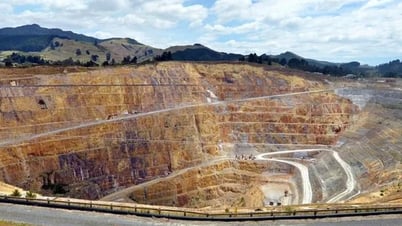

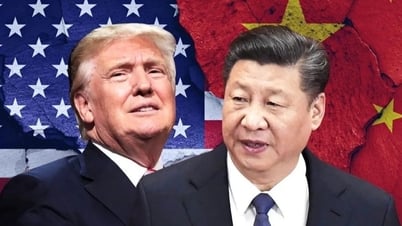
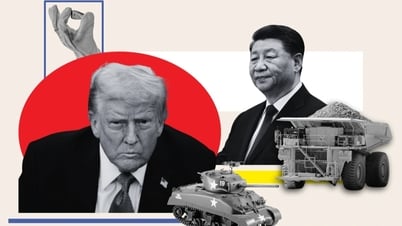



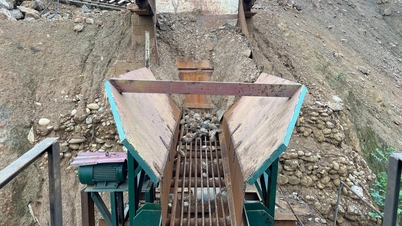
















































![[Photo] President Luong Cuong presents decisions on conferring titles and appointing Vietnamese Ambassadors](https://vphoto.vietnam.vn/thumb/402x226/vietnam/resource/IMAGE/2025/10/10/1760082105623_image-1.jpeg)




















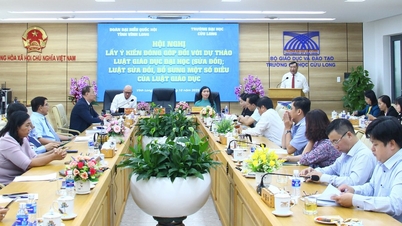


















Comment (0)